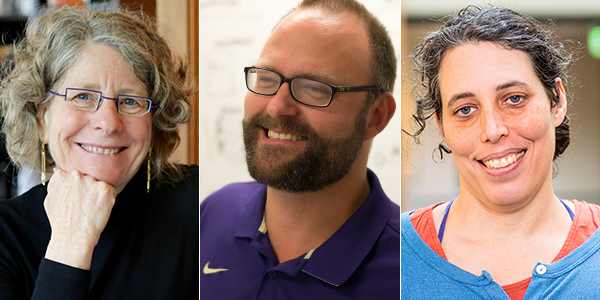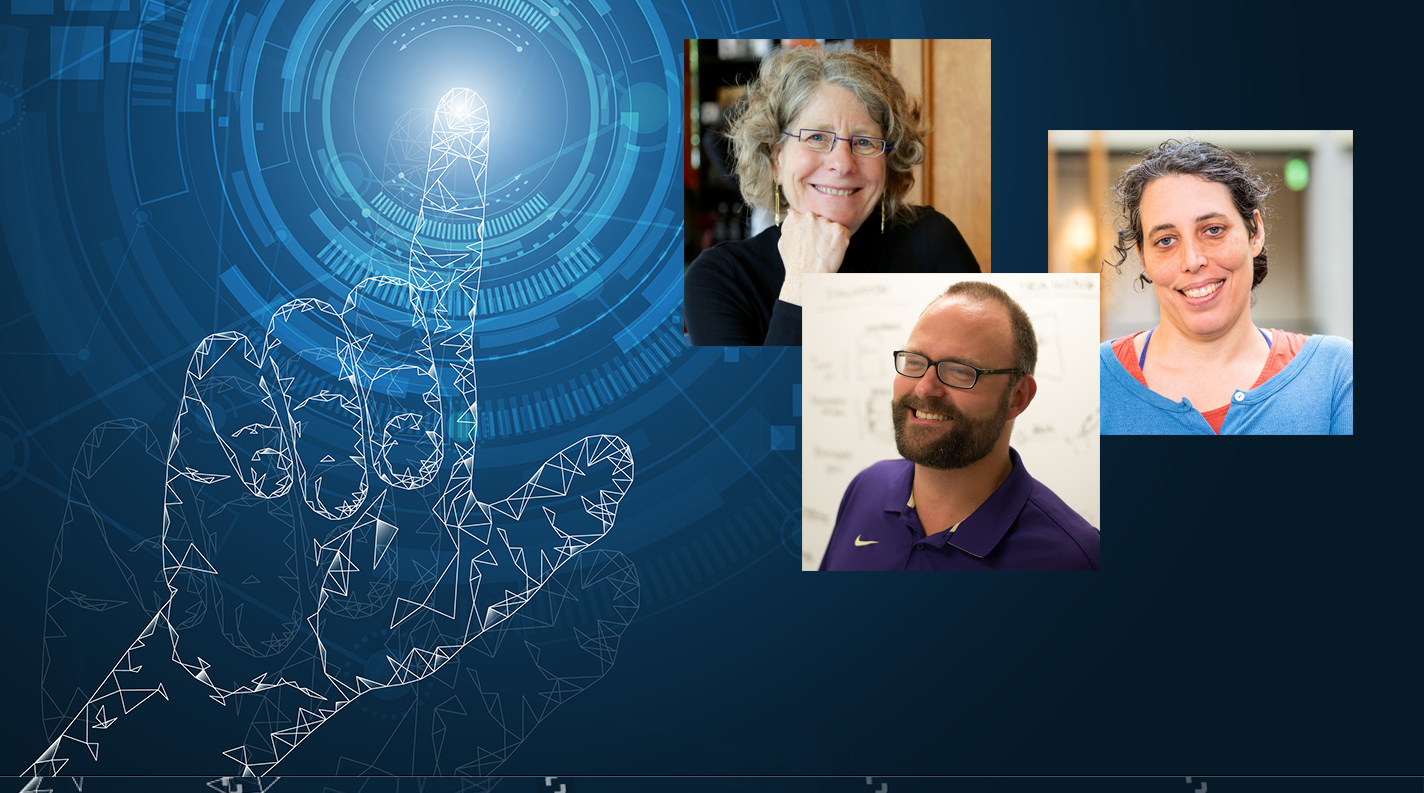Three University of Washington professors, including two from the Information School, have been inducted into the CHI Academy – recognized as the highest honor in the field of human-computer interaction.
iSchool faculty members Batya Friedman and Jacob O. Wobbrock, along with Jennifer Mankoff, a professor in the Allen School of Computer Science & Engineering, are among eight people selected this year for their contributions to the field. Each year since 2001, SIGCHI (Special Interest Group on Computer-Human Interaction) has recognized 6-8 people for their contributions to scholarship and innovation in HCI.
“The CHI Academy is like the HCI community's hall of fame for researchers and practitioners,” iSchool Dean Anind Dey said. “Being elected to the Academy is a tremendous honor.”
Dey noted that the UW has been remarkably prolific in publishing at CHI, leading all institutions in the number of papers published in each of the past four years.
“Combining this with three members of the 2019 CHI Academy class being from the UW really solidifies the UW as a global leader in HCI,” he said.
Friedman pioneered value sensitive design, an approach to account for human values in the design of technology. First developed in human-computer interaction, value sensitive design has since been used in architecture, civil engineering, computational linguistics, computer security, energy, human-robotic interaction, information management, legal theory, moral philosophy, science and technology studies, and transportation.

Friedman has worked on technologies and values in a wide range of systems, including security for implantable medical devices, informed consent for cookies and web browsers, reputation in knowledge base systems, privacy in mobile technology, and equitable representation in large-scale computer simulations for land use and transportation planning.
At the iSchool, Friedman is the co-director of the Value Sensitive Design Lab and the interdisciplinary Tech Policy Lab. In 2012, she was awarded the ACM SIGCHI Social Impact Award.
“I am deeply touched and honored to receive this recognition,” Friedman said. “I feel truly fortunate to have been able to pursue work on human values and technology, and to contribute to the human-computer interaction community in these ways.”
Wobbrock’s research has sought to scientifically understand people’s interactions with computers and information, and to improve those interactions through design and engineering, especially for people with disabilities. His research has centered on input and interaction techniques, human performance measurement and modeling, HCI research and design methods, mobile computing, and accessible computing.
“I am extremely honored to be inducted into the CHI Academy, and to join such a prestigious group of HCI pioneers whose contributions I have admired for decades,” Wobbrock said. “To receive the SIGCHI Social Impact Award two years ago and now to be inducted into the CHI Academy have been the highlights of my professional life, and I feel deeply indebted to the University of Washington Information School, to the design: use: build: (DUB) Group, and to my current and former Ph.D. students and collaborators who have provided the environment and teamwork to make this possible for me.”
Mankoff is the Richard E. Ladner Professor in the Allen School. The focus of her work is on tools for improving inclusion in and accessibility of the digital future. A key focus of Mankoff’s is revolutionizing the production and delivery of 3D printed assistive technology. She also was a pioneer and leader in addressing sustainability through computation.
“It’s an honor to be included in the CHI Academy, and one I hope to live up to in my future research as much as in my past research,” Mankoff said in an Allen School story. “I am passionate about creating accessible, inclusive systems and the engineering to make them feasible and deployable, and grateful for all the students and collaborators who have helped me to create them and to be recognized for this work.”
While each of the three inductees focuses on a different research area, all share the theme of doing research to support positive social change, noted Dey, who himself was inducted into the CHI Academy in 2015 while at Carnegie Mellon University.
“Batya has pioneered the use of value-sensitive design to ensure that human values are critically considered in designing information systems. Jake has made several contributions that together support people's interactions with computers and information, particularly for those with disabilities. Jen has made significant contributions to a number of fields, including sustainability, accessible computing, and fabrication,” Dey said. “The level of impact all three have had for such a sustained period of time is admirable, and makes them very deserving of recognition by the CHI Academy.”
The new inductees will be formally recognized at the CHI 2019 conference in Glasgow, Scotland in May.
